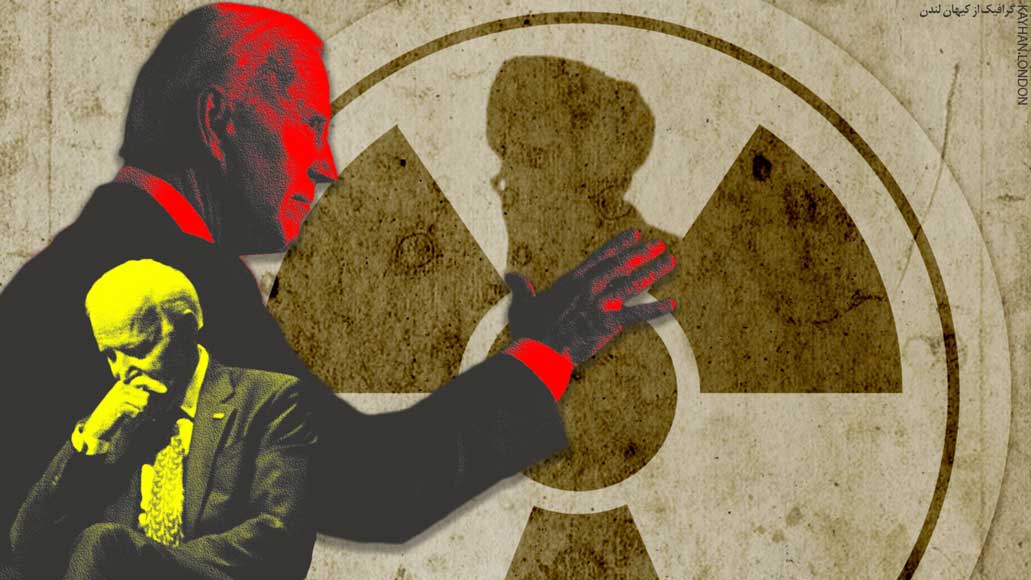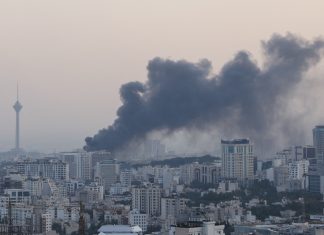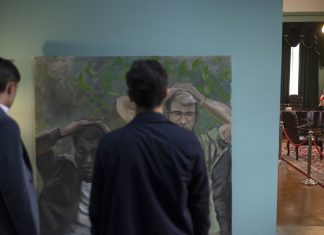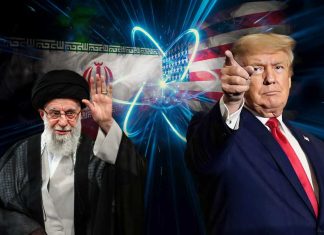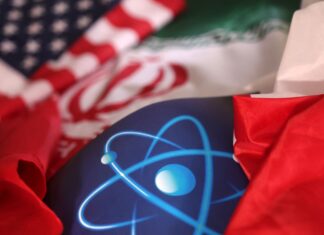By Ahmad Rafat
A fifth round of talks on the U.S. rejoining the 2015 Joint Comprehensive Plan of Action (JCPOA), better known as the Iran nuclear deal, is currently taking place in Vienna. Former U.S. President Donald Trump unilaterally withdrew from the agreement in May 2018. It is unlikely that the latest discussions will resolve the remaining issues to the complete satisfaction of Tehran and Washington.
Despite the initial optimism, the Vienna talks have reached a deadlock.
Late in the negotiations, Iran agreed to extend by a month an agreement allowing the UN nuclear watchdog, the International Atomic Energy Agency (IAEA), to keep surveillance cameras at its nuclear sites. The original three-month agreement was reached during a visit to Tehran by IAEA chief Rafael Grossi. The current arrangement will end on June 24.
The Majlis (Iranian Parliament) passed a resolution in February preventing IAEA inspectors from snap inspections of the country’s nuclear sites. The agency’s cameras, however, continued operating at the nuclear facilities, but Iran said it would only hand over recordings to inspectors if the U.S. lifted all sanctions. Otherwise, all videos would be destroyed. This issue alone could have stopped the Vienna negotiations.
Before announcing the agreement on surveillance cameras, Mr. Grossi told the Financial Times: “A country enriching at 60 percent is a very serious thing — only countries making bombs are reaching this level.”
IAEA Head Calls Iran’s Nuclear Programme “Very Concerning” – FT
Robert Malley, the U.S.’s lead negotiator in the indirect talks with Iran in Vienna, said: “The latest round of talks was constructive and saw meaningful progress, but much work still needs to be done.”
Iranian Foreign Ministry Spokesperson Abbas Araghchi, echoed the same sentiment before leaving Tehran to attend the latest Vienna talks.
“There are still important issues that need to be resolved,” Mr. Araghchi said. “God willing, we will reach the conclusive solutions.”
What are the principal obstacles preventing the U.S. from rejoining the JCPOA?
Sources have told Kayhan Life that the U.S. is not prepared to lift all sanctions, and the Islamic Republic is unwilling to shut down the new generation of centrifuges it made operational last year.
Before the fifth round of talks in Vienna, the Atomic Energy Organization of Iran’s (AEOI) director, Ali Akbar Salehi, said the country continued enriching uranium at 5 percent, 20 percent, and 60 percent. Mr. Salehi noted that Iran had stockpiled some 90 kilograms and 3.5 kilograms of 20 percent and 60 percent enriched uranium in the past four months. He added that the country also had stored 5,000 kilograms of 5 percent enriched uranium in recent months.
Under the 2015 nuclear deal, Iran can store a maximum of 202 kilograms of 3.7 percent enriched uranium.
Iran has yet to comply with the 2015 agreement, banning a new generation of centrifuges. The U.S. would consider lifting the main economic sanctions if Iran were to destroy its IT4, IR6, and IR9 centrifuges. Some reports have warned that Iran is only three to four months from developing a nuclear bomb. That timeframe could be extended to at least 12 months if Iran agreed to shut down and destroy these centrifuges.
During his recent visit to Israel, U.S. Secretary of State Anthony Blinken said: “What we do not know is whether Iran is prepared to make the decisions necessary to return to full compliance with the nuclear agreement. They, unfortunately, have been continuing to take steps that are restarting dangerous parts of their program that the nuclear agreement stopped. And the jury is out on whether they are prepared to do what is necessary.”
A U.S. State Department official who spoke on condition of anonymity told Kayhan Life: “If indirect talks in Vienna fail, we are prepared to do everything to make sure that Iran does not gain a nuclear weapon.”
While Iran insists that the U.S. lift all sanctions, Washington is adamant about keeping those directly linked to Tehran’s human rights records and its support for paramilitary and terrorist groups. Iran’s primary aim for engaging in the Vienna talks is to get relief from sanctions that have interfered with the sale of its oil. Iranian banks do not have access to the international financial system, and that has brought the country’s ailing economy to the brink of complete collapse.
While the U.S. is prepared to lift half of the 1,600 sanctions, most of which were imposed on Iran during Donald Trump’s presidency from 2017 to 2021, Tehran is seeking relief from all the sanctions.
These sanctions are divided into three groups. The first set of sanctions were reimposed on Iran automatically after the U.S. withdrew from the JCPOA in May 2018. The second includes those imposed on Iran because it supports terrorism, and the third relates to the regime’s human rights record.
U.S. Democrats Call for Iran Nuclear Talks to Include Missile Program and Human Rights
Iran will receive relief from the first group of sanctions automatically if the U.S. rejoins the JCPOA. U.S. President Joe Biden’s administration is prepared to remove some sanctions in the second category, particularly those imposed on the Islamic Republic of Iran Central Bank and the Oil Ministry.
It would be more challenging for Mr. Biden to remove the Islamic Revolutionary Guards Corps (IRGC) from the list of terrorist organizations without the approval of the U.S. Congress. The third group of sanctions will remain in place.
The key problem is removing the IRGC and the military and economic institutions operating under its auspices from the list of sanctioned entities.
The June presidential election has cast a shadow over the Vienna talks, even though Western signatories to the JCPOA rightly believe that Iran’s Supreme Leader Ayatollah Ali Khamenei and not the government sets all the country’s policies, particularly those involving the nuclear program.
In a leaked audio recording, Iranian Foreign Minister Mohammad Javad Zarif said the government and the foreign ministry only implemented decisions handed down by senior state officials, meaning Mr. Khamenei.
Khamenei Criticises Iran’s Foreign Minister over Leaked Remarks
A closer examination of the seven candidates, whom the Guardian Council has qualified to run in the presidential election on June 18, shows that Ebrahim Raisi, the current head of the Judiciary, will be the likely winner. Several other candidates who could have a real chance against Mr. Raisi were disqualified, including Ali Larijani, the former Speaker of the Majlis.
The election of Raisi could affect the Vienna talks. Khamenei has made sure that the next government and not President Hassan Rouhani and his cabinet will get the credit for any positive outcome from the Vienna talks, including the easing or lifting of sanctions.
Iran’s Khamenei Backs Hardliner Versus Hardliner Presidential Vote
Iran’s relations with the international community will not improve if Raisi becomes the country’s next president. Opening up relations with the West is not on top of Iran’s foreign policy agenda. If that were Khamenei’s primary goal, then Ali Larijani would have been a much better choice for president.
European leaders will not rush to support Raisi and meet him, given his dismal human rights record. He was allegedly one of the three members of the “death committee” that ordered the execution of thousands of political prisoners in the 1980s, none of which received a trial.
The next Iranian government will engage with the U.S., hoping to have sanctions lifted. It will not encounter any resistance in its efforts, given that it will receive the support of extremist factions in Iran. This must not be interpreted as Iran rejoining the free world. Under Raisi, Iran is likely to strengthen its ties to China and President Vladimir Putin’s Russia.

